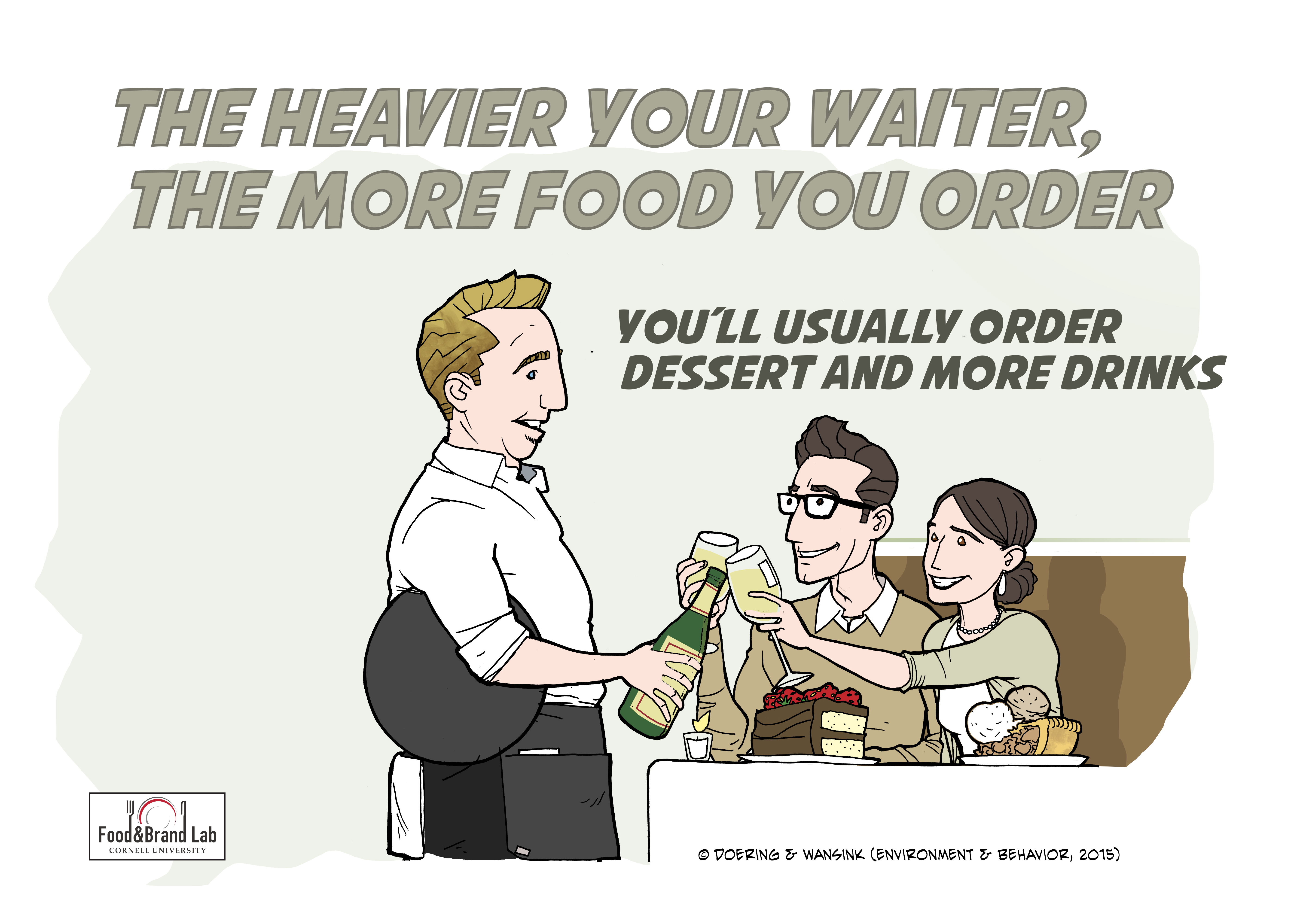Why You Might Order Differently From a Heavier Waiter

By:
Among the temptations you encounter in a restaurant, here's one that may not have occurred to you: The heavier your waiter, the more likely you are to order more food, according to a study conducted by Cornell University's Food and Brand Lab.
Looking at nearly 500 customer-waiter exchanges in 60 casual restaurants such as Applebee's and T.G.I. Friday's, researchers found that customers who ordered their dinner from heavier servers were four times more likely to order dessert and ordered nearly 20 percent more alcohol.
The thinner YOU are, the more influence a heavy waiter seems to have on you, according to the study's comparison of the Body Mass Index of customers and waiters.
“No one goes to a restaurant to start a diet,” Tim Doering, the study lead, said in a release. “As a result, we are tremendously susceptible to cues that give us a license to order and eat what we want. A fun, happy, heavy waiter might lead a diner to say, ‘What the heck,’ and to cut loose a little.”
RELATED: We Asked a Bunch of Servers if They Think Tipping is Fair. Here's What They Said
 Cornell Food and Brand Lab - cornell.edu
Cornell Food and Brand Lab - cornell.edu
Doering chalked the results up to "liberation," he told The Wall Street Journal. This means that people with heavier waiters might feel better about ordering fatty foods themselves.
The researchers wrote that the findings provide valuable evidence in recent lawsuits against weight discrimination in the hiring of servers. They also suggest that consumers decide beforehand what they will and will not order at a restaurant — such as a salad appetizer, no dessert, and one drink — rather than decide when the waiter arrives.
RELATED: Here's Who You Tip the Most
Hiring heavier staffers could be good for a restaurant's business. Charlie Sorrel wrote in Fast Company that he hopes this study gets more visibility so that worker discrimination becomes less of a problem in our country. "Instead of shunning overweight hires, restaurants may embrace or even encourage them," he wrote.
Last year, a Vanderbilt University study found that obese women earn less than their non-obese counterparts in jobs that emphasize personal interaction (i.e., working as a restaurant server). Jobs with ample personal interaction tend to be higher paying. But when obese women work these jobs, they earn less than women who are not obese. This counteracts the wage premium that comes with jobs emphasizing personal interaction.
"Together, these results suggest that taste-based discrimination may be driving occupational sorting among obese women and, as a result, is at least one source of the wage penalty experienced by obese women," the study said.
